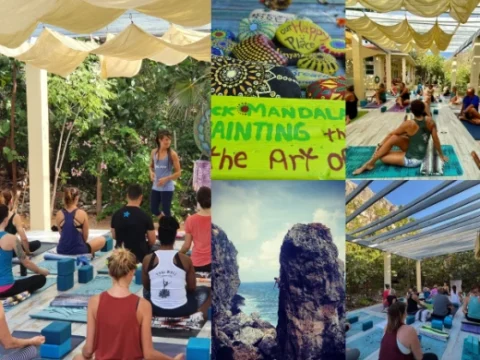Meditation 🪷
On this page, you will be able to find volunteer projects related to Meditation & Spirituality.
What is Meditation?
Becoming masters of one’s mind and governing the thoughts that are constantly crowding into one’s head is the desire of many, especially today, in a society where most of us lead a hectic life. By the term “meditation” which comes from the Latin verb “mederi” (to measure, to think, to meditate), we mean a practice that allows us to become aware of the “here” and “now” through the use of mental concentration techniques.
Meditation
Meditation is a very ancient practice which allows us to get in touch with the most intimate part of ourselves, with the deeper Self, what we tend to neglect because we are too busy with commitments and tasks of every day. Meditating is an act of awareness, and if one is a beginner, it is not necessary to follow rituals or assume specific positions. Rather it is important to retreat to an isolated and silent place to concentrate better on what you are doing.
Meditation has a single goal:
to be in the present instant. At the beginning of the practice, one can feel the need to be followed by someone to have some scheme to follow, so it could be useful to attend a course that teaches the basic principles of meditation.
Meditation techniques
The ways to reach the state of quiet and calm are many and different. The main religions of the world, including Buddhism, use techniques to increase awareness and spirituality. In Buddhism, meditation is the tool that helps men to free themselves from suffering and to reach enlightenment. Today, taking up the ancient Buddhist teachings, many speak of “Mindfulness”, which essentially means “awareness of thoughts, motivations and actions”.
Meditative techniques are divided into three categories:
- visual meditation (based on visualizations);
- mantric meditation (based on the repetition of phrases, songs, words, invocations, prayers, praises);
- A meditation originating from India and quite widespread in the West is the “transcendental” one, which is based on the ancient Vedic religious tradition. In India, this type of meditative action was practised above all by the Illuminati.
The psycho-physical benefits of meditation
Now it is scientifically proven: meditating is good for the health of the body and the psyche. Those who practice this discipline on a regular and constant basis can immediately verify the positive effects. Here is what they are.
- It is a remedy for flu and seasonal ailments: regular practice, combined with constant physical activity, is able to prevent the flu, thus avoiding the use of the flu vaccine;
- It is a remedy that helps combat anxiety and depression. Scientists believe that 30 minutes a day would be enough to get excellent results in treating anxiety and depression, replacing antidepressant drugs;
- It is an excellent tool to improve concentration and memory. Practising meditation techniques for 8 weeks causes positive effects on empathy and memory. Like all relaxation techniques, meditation also gives greater lucidity to brain function;
- It is a way to reduce physical pain. The practices of concentration on the breath, in particular, make it possible to decrease the perception of pain by helping to regain wellness;
- Meditating relieves stress, reducing the concentration of cortisol (the stress hormone) and increasing practitioners’ resistance to external pressures, ie from the workplace;
- It is a great way to increase productivity at work since the effects of meditation are reflected in brain waves, which pass from a beta type state to a delta and theta type.
Also, visit the Yoga page or the Spirituality section
Meditation volunteer projects 🧘🪷




















